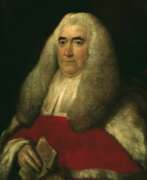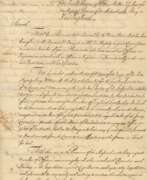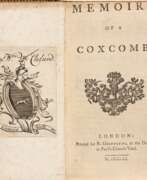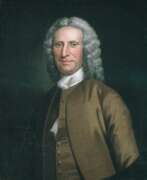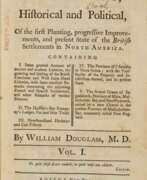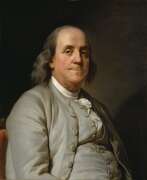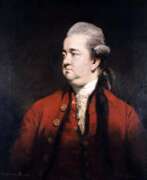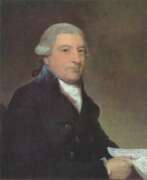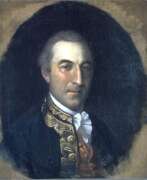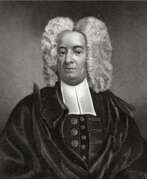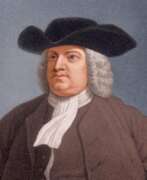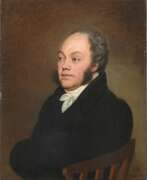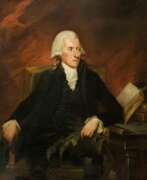Publicists 18th century
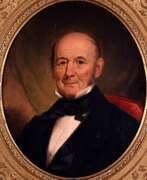

Abijah Bigelow is an American legislator, U.S. Representative from Massachusetts, poet and publicist.
Bigelow attended Dartmouth College in Hanover and became a lawyer. Between 1810 and 1815, he represented Massachusetts in the U.S. House of Representatives, where he strongly opposed the War of 1812. He also served as a justice of the peace from 1809 until his death.
As an author and poet, Bigelow published his work in Worcester newspapers throughout his life. Six essays entitled "Political Reflections" were published in the Massachusetts Spy in 1812, and a series of articles on slavery, signed by him as "The Unprofessional," were printed in the Worcester Palladium in 1838. Bigelow was also a member of the American Antiquarian Society.
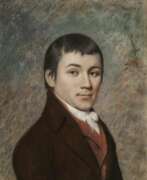

Charles Brockden Brown was an American writer, historian, and editor.
Brown took up literary endeavors early in life. In 1798, his first mystical and psychological novel, Wieland, was published. Brown also wrote the novels Ormond (1799), Edgar Huntley (1799), and Arthur Merwin (1799-1800).
Brown's works interweave fiction, history, fantasy, psychology, and liberal politics. Brown is considered the father of the American novel. His American-style Gothic novels pioneered and paved the way for two of the greatest early American writers, Edgar Allan Poe and Nathaniel Hawthorne.
Charles Brown also wrote a great deal of journalism on political, educational, and historical topics.
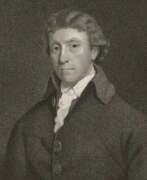

John Cartwright was an English naval officer, Nottinghamshire militia major and prominent campaigner for parliamentary reform. He subsequently became known as the Father of Reform. His younger brother Edmund Cartwright became famous as the inventor of the power loom.
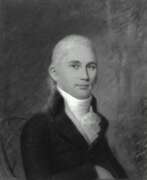

Joseph Dennie was an American writer, journalist, and major literary figure of the early 19th century.
Dennie graduated from Harvard College, became a lawyer, but became active in writing. In 1801, he founded a periodical called The Port Folio, which became the most prominent literary weekly of its time in America. It was also the first important political and literary journal in the United States.
As founder of the Tuesday Club, Dennie was the center of Philadelphia's aristocratic literary circle in the early 19th century and for a time was the leading literary critic in the country. He ridiculed the simplistic and crude nature of Native Americans and opposed democratic innovations. He also encouraged talented young writers.


Philip Morin Freneau was an American publicist, editor, and known as the "poet of the American Revolution".
After graduating from Princeton University, Freneau taught school and studied to become a minister. With the outbreak of the American Revolution, he began writing scathing satire on the British and the Tories. During a two-year voyage to the Caribbean islands, he created the poems "The Beauties of Santa Cruz" and "The House of Night," and in 1778 he became involved in the war. After his release from British captivity, Freneau wrote a book in verse, "The British Prison Ship" (1781).
After serving as a sea captain for several years, Freneau took up journalism. In his National Gazette newspaper in Philadelphia, he sharply criticized George Washington.
Freneau's poetry, which accompanied him throughout his life, covers a variety of subjects, including political situations, American Indians, nature, the sea, and naval battles. His political poems are often satirical, but his nature poems are very lyrical.
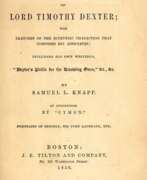

Samuel Lorenzo Knapp is an American author and lawyer and politician.
Knapp graduated from Dartmouth College and eventually became a prominent lawyer, holding a Juris Doctor degree. He was a representative in the Massachusetts legislature from 1812 to 1816, and in 1814 joined the American Antiquarian Society.
In 1824 Knapp became editor of the Boston Gazette and also kept the Boston Monthly Journal. In 1826 he founded the National Republican Party, which collapsed two years later, and returned to practicing law in New York City. Knapp published various biographical studies as well as many public discourses on politics and society.
In 1818 his fiction Ali Bey (Excerpts from a Journal of Travels in North America, consisting of descriptions of Boston and its environs) was published. It is a sort of diary of a fictional Ottoman spy who travels in America disguised as a Frenchman.
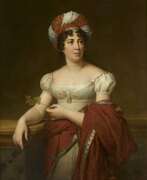

Anne-Louise-Germaine Necker, Baroness of Staël-Holstein, known as Madame de Staël, was a French writer, literary theorist, and publicist.
She was born into a Swiss family where her father was a banker and then finance minister to King Louis XVI, and her mother ran a brilliant literary and political salon in Paris where Voltaire, Diderot, and Hume frequented. Young Necker received a brilliant education, she absorbed the intellectual environment with great curiosity, becoming a witty and well-read conversationalist.
In 1786, she married the Swedish ambassador to Paris, Baron Eric de Staël-Holstein. It was a marriage of convenience, which ended in 1797 formal divorce.
Madame de Staël became known not only for her stunning and versatile works, but also for her enormous influence on the intellectual climate of that 19th century. During her lifetime she was known as a novelist, but she became much more famous as a political philosopher, literary critic, and theorist of Romanticism. Madame de Staël was an implacable opponent of Napoleon I and traveled around Europe for a decade during his reign from 1803. In 1810, the writer published one of her most famous and influential works, On Germany. She returned to Paris in 1814, after the fall of Napoleon, and wrote "Reflections on the Principal Events of the French Revolution."
In her travels, Madame de Staël met many politicians, artists and writers and was known for her cosmopolitanism and feminism. Madame de Staël epitomized the European culture of her time, combining ideas from neoclassicism to romanticism in her glittering salon for leading intellectuals.
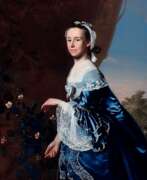

Mercy Otis Warren was an American poet, satirist, playwright, historian, and essayist of the American Revolution.
Mercy Otis was born into a prosperous Cape Cod Island family and was immersed early in the tumultuous political events taking place in the country at the time. One of her brothers was political activist James Otis, who was involved in the American Revolution from the beginning. In 1754, Mercy Otis married farmer James Warren, who later served in the Massachusetts legislature (1766-78). Through her husband's political connections, Warren was personally acquainted with most of the leaders of the Revolution and was constantly at the center of events for more than two decades.
Combining her own convictions with her writing talent, Warren became a poet and historian of the revolutionary era. Her first incisive and polemical pieces in verse were published in a Boston newspaper. This was followed by the prophetic novel Defeat and other works. In 1790 she published a collection of her works, Poems, Dramatic and Miscellaneous, which included two new plays, The Sack of Rome and The Ladies of Castille. For a woman of the time, such publications were very daring, as female writers usually hid under pseudonyms.
Warren also corresponded extensively with politicians, including George Washington and Thomas Jefferson. In 1805, she completed a three-volume work entitled A History of the Rise, Progress, and Termination of the American Revolution. This book was the earliest work on historical events in the country. Its proximity to political leaders and major national events makes Mercy Warren's writings on the American Revolutionary period especially valuable.
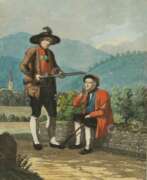

Johann Ludwig Christian Rheinwald was a German civil servant and archivist.
Rheinwald prepared and published two series depicting various regional costumes of Bavaria. Rheinwald enlisted the services of a local German artist and engraver, Ludwig Neureuther, who drew and engraved sheets depicting typical outfits of local Bavarian men and women.
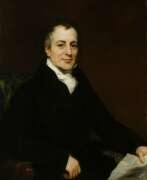

David Ricardo was a British economist and a classic of political economy.
David's father, a stockbroker, came from a Jewish family and emigrated from Holland to England in the early 1770s. After his studies, young David was hired by the London Stock Exchange and worked with his father, but at the age of 21 he broke away from his family. He soon started his own business as a dealer in government securities and became rich very quickly. At the age of 27, Ricardo became seriously interested in economics and from 1809 began to publish articles in the press on topical issues of currency and economics. He met the economist James Mill, who became his political and editorial adviser. He also befriended the utilitarian philosopher Jeremy Bentham and Thomas Malthus.
Ricardo's major work was On the Principles of Political Economy, and Taxation, published in London in 1817. It was a fundamental contribution to economic science and the first systematized approach to the subject. In this work, Ricardo addresses the "main problem of political economy," defined as determining the laws governing the "natural course of rents, profits, and wages" over time. He also develops ideas advanced in Adam Smith's The Wealth of Nations (1776), outlining a new labor theory of value, as well as theories of international competitive advantage and the effects of taxation. Ricardo was the first to formulate the "classical" system of political economy, and his ideas dominated economic thought throughout the 19th century.
By the age of 41, David Ricardo had completely retired from business and began to lead the quiet life of a gentleman and landowner on his estate. In 1819, Ricardo was elected to the British Parliament as an independent representative of a district in Ireland.
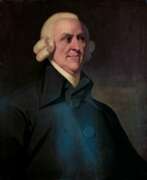

Adam Smith was a Scottish economist and philosopher, one of the founders of economic theory as a science.
After graduating from Balliol College at Oxford University, Smith in 1751 became Professor of Logic and then Professor of Moral Philosophy at the University of Glasgow. And at the same time worked on publishing some of his lectures. His book The Theory of Moral Sentiments was published in 1759. As a philosopher, he wrote on a wide range of subjects: moral philosophy, jurisprudence, rhetoric and literature, and the history of science. He was one of the leading figures of the Scottish Enlightenment. Adam Smith also studied the social forces that give rise to competition, trade, and markets. On his trip to France, he met François Kenet and the Physiocrats.
In late 1763, Smith was given the position of tutor to the young Duke of Buccleugh and resigned his professorship. He began to socialize extensively with the intellectuals of his day, aristocrats and scholars, members of the government and representatives of big commerce, and gradually moved from philosophy to economics.
Adam Smith published his most important work, An Inquiry into the Nature and Causes of the Wealth of Nations (abbreviated as The Wealth of Nations), in 1776. It was the first major exposition of the theory of free trade, where the author advocates individual liberty and the accumulation of wealth, while strongly advocating moral justice and duty to society. He describes a system of natural liberty and justice that seeks to raise the standard of living of the general population by equating higher wages with a healthier and more productive labor force. He proves his belief that the limits to growth are political, not economic, and outlines the principles that should guide lawmakers. Smith also lays out a history of economic theory, a historical analysis of the wealth of nations, including China, and predictions for the future.
"The Wealth of Nations" was the first and still remains the most important book on political economy. And Adam Smith himself is considered the founder of classical political economy; he introduced the term "the invisible hand of the market." Although he did not use the word "capitalism", he is called the father of modern capitalism.
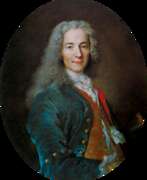

Voltaire, born François Marie Arouet, was a French philosopher-enlightener of the French Enlightenment, poet and writer, satirist, tragedian, historian and essayist.
Voltaire's long life fell on the last years of classicism and the eve of the revolutionary era, and in this transitional period his works and activities had a significant impact on the direction of European civilization. Through his critical freethinking and wit, Voltaire won the minds of many 18th century European rulers. To this day, he continues to enjoy worldwide fame as a courageous fighter against tyranny, bigotry, and cruelty.
Voltaire was an advocate of freedom of speech, freedom of religion and separation of church and state. He was a versatile and prolific writer in all literary forms, including plays, poems, novels, essays, histories, and scholarly expositions. In total, he wrote more than 20,000 letters and 2,000 books and pamphlets. Voltaire's most famous works are the tragic play Zaire, the historical study The Age of Louis XIV, and the satirical novella Candide.
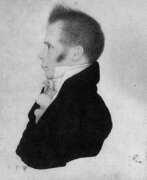

George Watterston is an American politician, author and journalist.
He graduated from the Charlotte Hall Military Academy with a law degree. But, apparently, he soon became so disappointed in the profession that he began to write poetry and prose, in which he portrayed lawyers in a very unsightly form. His first novel "The Lawyer, or The Man as he ought not to be" Watterston published in 1808. This poignant novel is ostensibly a confession of a corrupt lawyer and seducer in the spirit of Stephen Burroughs' Memoirs of Stephen Burroughs. Watterston's ironic take on the didactic novel straddles the line between Charles Brockden Brown's gothic thrillers and dark comedy. He also wrote the novel Glencarne or the Disappointments of Youth (1810), the play Child of Sentiment (1809), and the poem Scenes of Youth (1813), among others.
After the end of the War of 1812, President James Madison appointed Watterston as Librarian of Congress, the third person to hold the position and the first to be solely responsible for it. He held the position from 1815 to 1829.
In 1813, Watterston became editor of the Washington City Gazette. And after his dismissal from Congress, he became editor of the National Journal. He continued a productive literary and journalistic career until his death.


